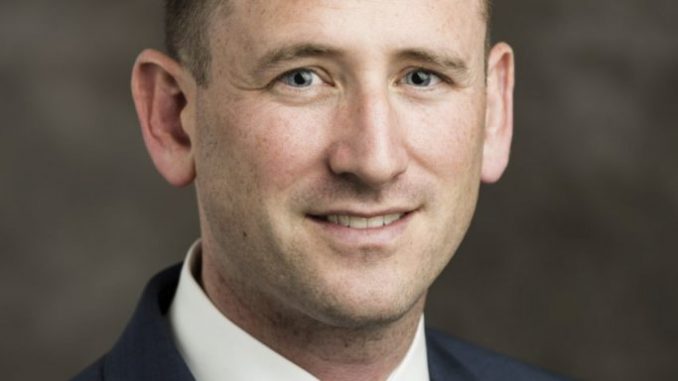
Dr. Eitan Hersh was welcomed by members of the SUNY New Paltz community as part of the Gary King Visiting Lecturer Series of Applied Sciences on March 23. Hersh’s lecture was titled “Political Hobbyism vs. Political Power: Who is to Blame for Our Broken Politics?” and focused on what it means to be truly politically aware in the present day.
An associate professor of political science at Tufts University, Hersh defined political hobbyism as the practice of “treating politics like a spectator sport” in his newest book, “Politics Is for Power: How to Move Beyond Political Hobbyism, Take Action, and Make Real Change.” Political hobbyism manifests in the form of reading the news in small increments throughout the day and being aware of politics on the federal level without value in local and state elections or community values. Hersh’s main argument was that in the modern day, political habits are reading, talking and thinking about politics, not dedicating time to volunteering in political organizations.
Hersh began the lecture with his observation that there is a “stark difference between how politics are taught in upper education and how politics play out in real life.”
The way people think about politics according to feelings and facts instead of policies and goals creates a cycle of ineffective participation. Young, college-educated voters are most commonly at fault for this. This is driven by a trend identified by Pew Research Center that college-educated individuals are more likely to rely on national news sources while non-college-educated citizens more often consume local media.
Hersh explained how this is an issue through his point that the American public votes the most “when it matters the least.” Local and state elections arguably have more direct influence on everyday life for most American citizens. However, the driving behavioral force when it comes to politics is hobbyism, not political power harnessed from lobbying and community engagement. Being personally disconnected yet aware of politics saves individuals from feeling disappointed in the government. But this also means that there are fewer communities fostering interactions that keep politics casual and local, as American society has arguably “done away with patronage.”
Political hobbyism is therefore not a gateway to productive civic involvement. The practice incentivizes politicians to behave badly because strategic actors are able to feed off of low-money fundraisers. Additionally, hobbyism is shaped by the wrong skillset; political conversations between those informed yet unmotivated are pointless. Most political discourse online, as argued by Hersh, is that of the hobbyists and not the empowered.
Although a harsh reality check to many young voters, Hersh did not end the lecture on a pessimistic point. To tell the alternative, he offered the simple notion of “thinking about politics differently.” Political power is found in commitment to communities and interest groups with specific goals. Making the conscious decision to dedicate allocated time to politics – making involvement a consistent action, not a hobby – creates an empowered political environment instead of a stagnated environment of disinterest.
In the beginning of his book, Hersh writes, “More likely than not, if you are reading this book, this book is about you.” Young voters often do not realize the power potential of communities and civic involvement, which continues the hobbyism culture that plagues politics today. Personal insight and reflection is the first step to gaining political power and working toward a more productive democratic society, especially as a young voter.
